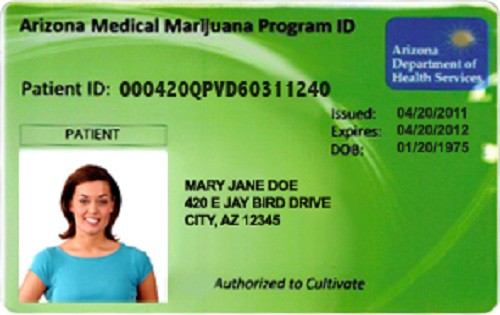The Arizona Supreme Court decided Friday November 20th, 2015 that people with a medical-marijuana card are not automatically immune from driving-under-the-influence laws if they are pulled over and found to have “marijuana or its metabolite” in their systems.
The ruling overturned an earlier decision by the state appeals court that, as David Euchner, one of the case’s attorneys explains, effectively ruled that “medical marijuana patients must forgo their right to drive” because simply the presence of marijuana in their system was enough to trigger a DUI charge.
Euchner says he and others on the case are pleased with the court’s ruling because “the voters never intended for patients to have to make a choice between taking their medicine and keeping a driver’s license” when they passed the Arizona Medical Marijuana Act in 2010.
But still, he adds, the final ruling has some glaring issues.
The decision stems from cases in which two women, Kristina Dobson and Marvelle Anderson, each were charged with two counts of DUI after marijuana was found in their bloodstream during a traffic stop.
Both received A1 charges, which concern whether a driver is impaired, and A3 charges, which can be levied by the mere presence of a drug in a driver’s system. (An A3 charge has nothing to do with whether a person is impaired.)
At trial, the A1 charges were dropped, but both women were convicted of violating A3. They appealed the decisions, arguing that the Arizona Medical Marijuana Act “categorically barred the A3 charge.”
In other words, they argued that as medical-marijuana cardholders, they were immune from A3 because the marijuana in their systems was legally prescribed to them.
The Arizona Court of Appeals sided against them, and they appealed to the Supreme Court.
“What happened today,” Euchner explains, “is that the Supreme Court split the baby. It said an A3 charge can be brought but that it can also be met with a defense.”
This means that medical-marijuana cards do not immunize people from A3 DUI charges — but that people have the right to provide evidence in court proving they weren’t impaired
Euchner says it’s certainly a step up from the decision by the appeals court, but he has two major concerns. First, he thinks it’s wrong that the burden falls on the defendants to prove they were not impaired — as opposed to the state having the burden of proving drivers were impaired.
And second, “The opinion doesn’t answer how defendants should prove lack of impairment” or what constitutes impairment.
Other states, Colorado for example, set a bright-line for impairment so that marijuana DUI charges work like alcohol DUI charges and a driver is either above the legal limit or not.
Euchner cautions that Arizona needs to deal with this soon, either through the state Legislature or by voter initiative — or else today’s decision runs the risk of violating peoples’ due process and right to fair and equal protection under the law.
Without a standard, “people would win or lose a case based on their socioeconomic status,” he says, because much would come down to whether people could afford top-notch lawyers and the best expert witnesses to testify at trial.
That being said, Thomas Dean, an attorney affiliated with the case, explains that a specific THC concentration in the bloodstream isn’t the best way to measure impairment, since marijuana affects people differently.
“A limit is completely arbitrary,” he says, adding, “I agree that if you have to choose between a decision like [today’s Supreme Court decision] and a bright-line standard, I would say a standard is more fair.”
Euchner also is concerned that “going forward, there could be real [problems] with how law enforcement implements and chooses to prosecute patients.”
He gives an example to illustrate his concern: suppose a person takes a legally prescribed Ambien, gets in a car, and crashes. That person would, rightly, be prosecuted under state DUI laws.
Now suppose that person doesn’t appear impaired but is subjected to a blood test for some other reason, and a small amount of legally prescribed Ambien is found. Euchner says it’s unlikely that the person would be charged with an A3 violation — “they don’t make you prove your innocence because Ambien doesn’t have the same social stigma as marijuana.”
So while he’s that worried marijuana patients will be prosecuted unfairly because of social stigma and concerned about some unanswered questions, overall, he says, “We are mostly happy.
“The decision doesn’t give us everything we wanted, but it gives us more than what we had before.”
